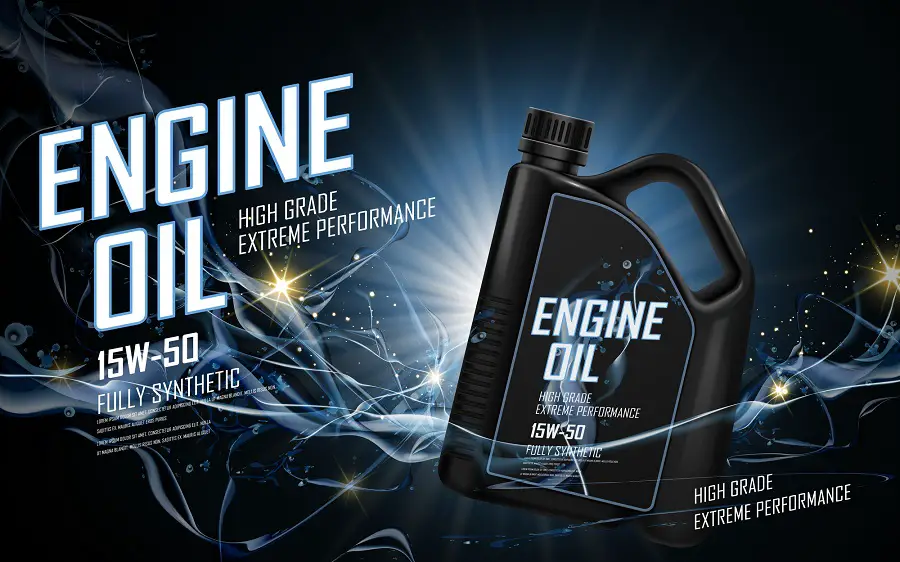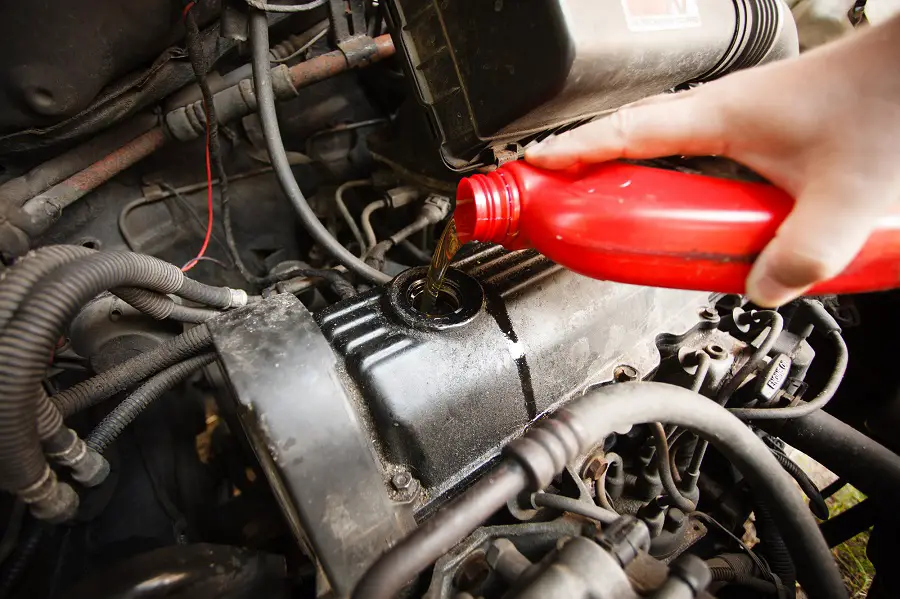Now that we’re in the middle of a summer heat wave across the country (in the USA, the summer of 2022 has seen extreme temperatures nationwide). We need to shift our thinking from the cold weather and cold temperatures of the winter to the warmth.
Regularly changing and adjusting your car’s motor oil is one of several routine care processes that boost the livelihood of your vehicle. However, choosing what oil to use in summer is not as straightforward as during other times of the year. That is because heat breaks down the chemicals in the fluid, lowering your engine performance.
Thankfully, some kinds of oil resist this breakdown. Let’s talk about how temperature affects the fluid and which oil viscosity is the best choice for your motor oil for summertime.

How Do Hot Temperatures Affect Motor Oil?
To understand what motor oil to use in summer, let’s talk about what happens to the fluid when it heats up (from external heat or from the normal operating temperatures internal to the engine).
A critical property of all chemicals is that they decompose in certain environmental conditions. This law is called thermal decomposition. A broken-down solution will not work as effectively as one in pristine condition. Engines rely on repeated combustions to run, so decomposing oil that doesn’t burn as well can cause damage to your vehicle.
Standard engine fluid accommodates the heat of a machine working at normal capacity. Coolant and antifreeze help lower the internal temperature of your vehicle under normal conditions.
However, while it may not seem significant, since engines quickly heat up to over 200 degrees, hot weather impacts your oil.

Most coolants allow your car to tolerate temperatures up to around 260 degrees at best, and on hot days these cases are common. Engine oil begins to break down above the standard 200 degrees Fahrenheit, regardless of coolant.
When engine oil breaks down, it becomes watery and thin and loses the oil viscosity properties it was designed to maintain. Parts of the compound separate from the rest of the liquid. As a result, when the oil burns, it oxidizes and thickens into a sludge that doesn’t flow easily. In a worst-case scenario, it can stop your engine and cause lasting damage.
Now that you know why having heat-resistant motor oil is critical let’s talk about the best oil for hot and humid weather.
Best Motor Oil For Summer
The best engine fluids for hot seasons come in two groups. Scientists engineered synthetic oil to withstand much higher temperatures to create a vehicular liquid that resists breakdowns. This compound comes in various subcategories. Each kind is far more effective during the summer than standard oils.
Full Synthetic Motor Oils
Full synthetic oil usually consists of either treated petroleum or poly-alpha-olefin. Some versions combine the two. There are a handful of different varieties, hybrids, and more. Mobil, Valvoline, and Pennzoil are some of the retailers that sell full synthetic oils.
Each full synthetic oil mixture stays viscous at high and low temperatures. Because of this, it does not evaporate as quickly as standard engine fluids. It also resists oxidation and won’t turn into a sludge under summertime vehicle temperatures, making full synthetic the best motor oil for Florida and other warm states as it maintains the desired properties found in the thicker grades.
Since full synthetics can tolerate high temperatures, your engine won’t be as risky if your car temporarily runs out of coolant.
Less evaporation in oil means less waste and fewer oil changes. In this way, full synthetic solutions can save you money while helping the environment. However, the base cost of these lab-created oils is usually expensive, with containers costing thirty or forty dollars on average.

Semi-Synthetic Oil
Semi-synthetic oils are a combination of full synthetic mixtures and mineral oil. The concentration of petroleum in the liquid varies, but more expensive varieties tend to have more. In general, semi-synthetic oil solutions are cheaper than their full counterparts.
While semi-synthetic oils are cheaper options, they don’t work as well. Because of their composition, part of the compound still evaporates, oxidizes, and thickens inside a car engine. They fare better than standard oil, but can still cause lasting vehicle damage without routine cleaning and changing.
Semi-synthetics also can’t stand temperatures as high as full varieties. You will need to pair a reliable coolant with these substances to get the best results. They also produce a fair amount of oil waste which can be harmful to the environment.
Despite the pros and cons, semi-synthetic oils are a practical middle-ground option for avoiding thermal decomposition on a budget.
Conventional Motor Oils
There aren’t many reasons to use conventional motor oils anymore. Synthetic and semi-synthetic blends have superior properties that make them perform in a wider range of environments (both warmer temperatures found in the south and during the summer and colder temperatures found in the north and during winter).
How To Buy Hot Weather Motor Oil
There are a few ways to get your car prepared for summer with synthetic oils.
If you’re capable of changing your oil, you can find synthetics at auto retailers. Look for containers with codes such as 0W-20, 5W-20, and 5W-30. These correspond to specific synthetic oil mixtures approved for standard vehicles.
Semi-synthetic mixtures tend to be labeled as “blends” for marketing purposes, so make sure that you’re buying the correct bottle.
If you don’t know how to change your oil, there’s an easy solution. During oil changes, service shops allow you to choose the mixture that you prefer for your car. Ask your auto mechanic about full and semi-synthetic options to improve your car’s livelihood.




